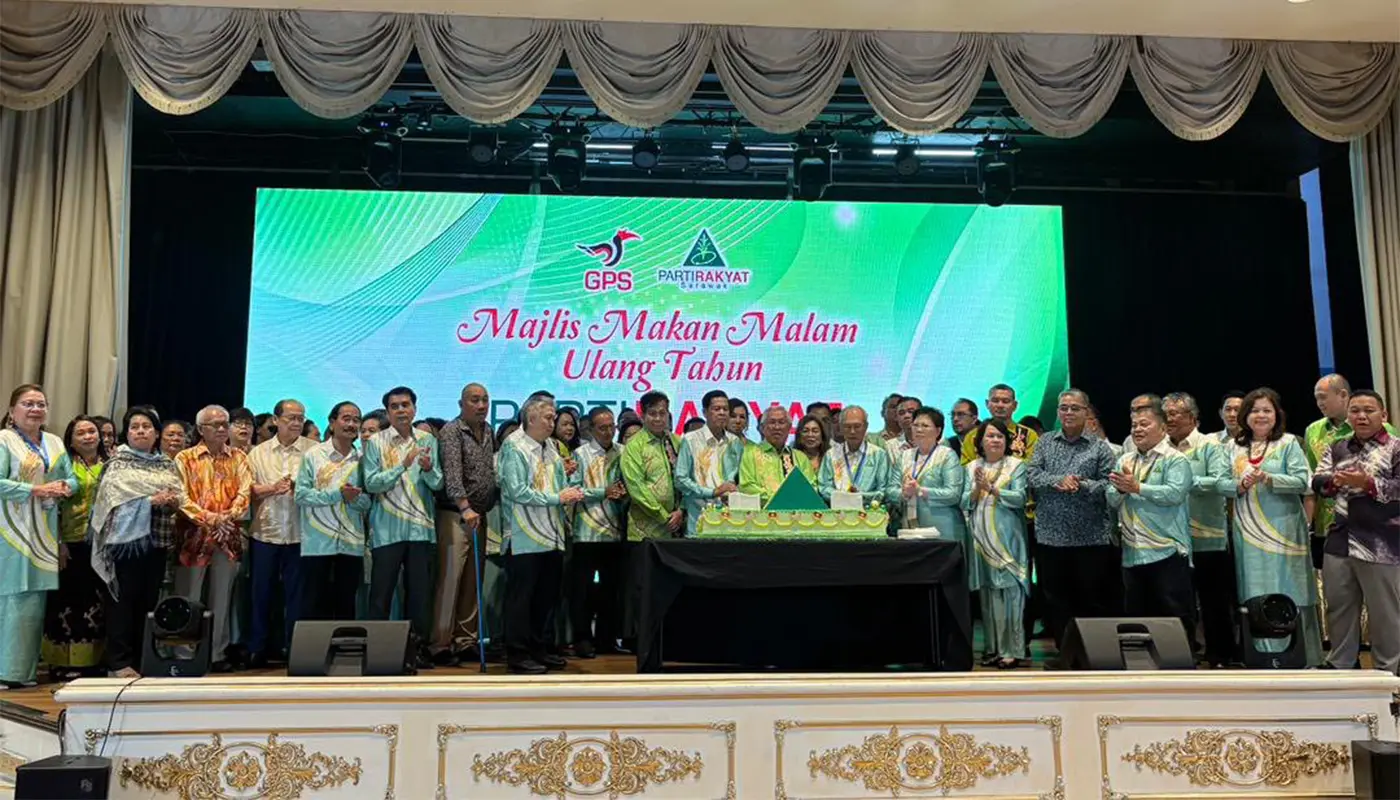KUCHING – The Gabungan Parti Sarawak (GPS) state government has reaffirmed that rural development remains the central pillar of its policy agenda.
This ongoing commitment focuses on delivering sustainable and comprehensive infrastructure to ensure no community is left behind in the state’s progress.
The pledge was reinforced by Dato Sri John Sikie Tayai, a Minister in the Sarawak Premier’s Department and the newly elected President of Parti Rakyat Sarawak (PRS).
He stated that PRS, as a key component party of the GPS coalition, would work closely with the state government to advance the rural development agenda. He emphasised that the party’s core principles are rooted in representing rural interests.
Furthermore, he made these comments while addressing reporters on Sunday at a hotel event commemorating PRS’s 21st anniversary.
“We still have a long way to go, especially in terms of rural development,” Dato Sri John Sikie acknowledged.
He outlined the immediate plan, stating, “What we will do now is that we will continue to work with the Sarawak Premier and all components in the GPS to help us, especially in rural areas.”
A primary focus will be on addressing fundamental infrastructure deficits. He identified specific areas needing attention, including road networks, reliable electricity supply, internet connectivity, and the refurbishment of schools in rural locations where conditions are often inadequate.
Beyond physical infrastructure, economic enhancement is a parallel priority. Dato Sri John Sikie explained that efforts to elevate household income are crucial for improving living standards.
He pointed to a specific state-level target, noting that the Sarawak Premier’s goal of achieving a household income of RM15,000 per month by 2030 should serve as a key guideline for shaping development strategies.
He also called upon grassroots party members to maintain a strong collaborative relationship with leaders. This unity is deemed essential for effectively championing the needs of rural populations.
The recent party conference solidified its leadership structure. Dato Sri John Sikie Tayai was formally elected as President after securing 186 votes.
Datuk Majang Renggi, the Deputy Minister of Infrastructure and Port Development, was confirmed as Deputy President, having run unopposed.
Several vice presidents were also appointed, including Datuk Wilson Ugak Kumbong and Senator Rita Sarimah Patrick Insol.






